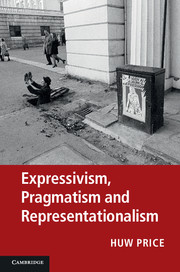Book contents
1 - Naturalism without representationalism
Published online by Cambridge University Press: 05 July 2013
Summary
What is philosophical naturalism? Most fundamentally, presumably, it is the view that natural science properly constrains philosophy, in the following sense. The concerns of the two disciplines are not simply disjointed, and science takes the lead where the two overlap. At the very least, then, to be a philosophical naturalist is to believe that philosophy is not simply a different enterprise from science, and that philosophy should defer to science, where the concerns of the two disciplines coincide.
Naturalism as spare as this is by no means platitudinous. However, most opposition to naturalism in contemporary philosophy is not opposition to naturalism in this basic sense but to a more specific view of the relevance of science to philosophy. Similarly on the pro-naturalistic side. What most self-styled naturalists have in mind is the more specific view. As a result, I think, both sides of the contemporary debate pay insufficient attention to a different kind of philosophical naturalism – a different view of the impact of science on philosophy. This different view is certainly not new – it has been with us at least since Hume – but nor is it prominent in many contemporary debates.
In this lecture I try to do something to remedy this deficit. I begin by making good the claim that the position commonly called naturalism is not a necessary corollary of naturalism in the basic sense outlined above. There are two very different ways of taking science to be relevant to philosophy.
- Type
- Chapter
- Information
- Expressivism, Pragmatism and Representationalism , pp. 3 - 21Publisher: Cambridge University PressPrint publication year: 2013
- 16
- Cited by



